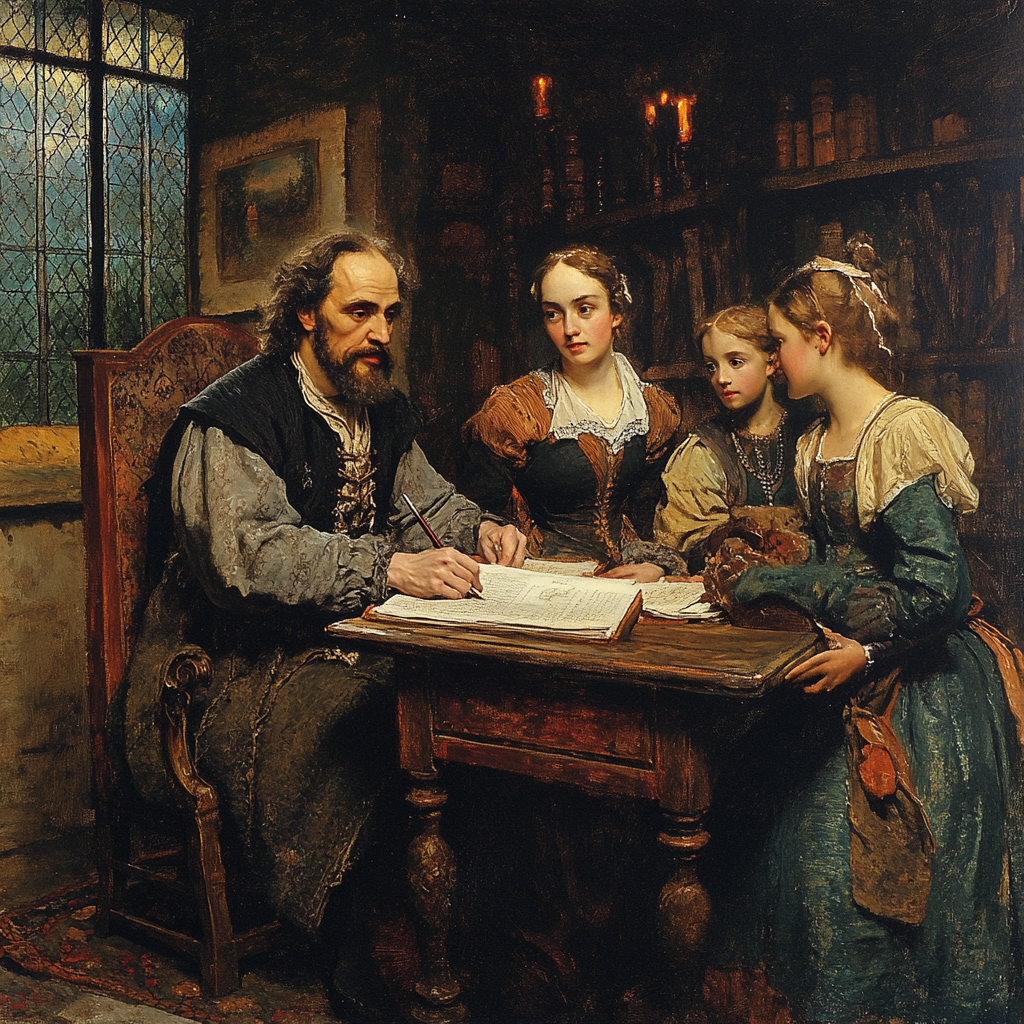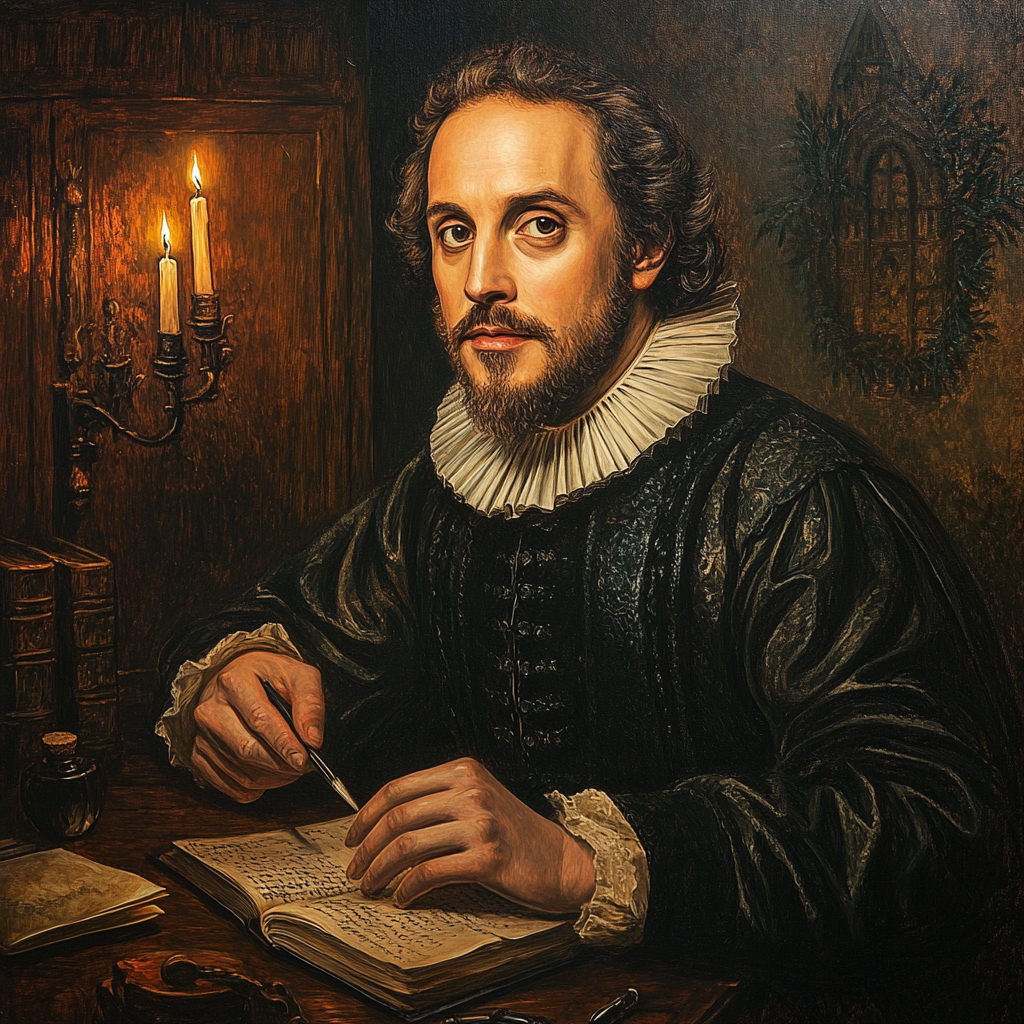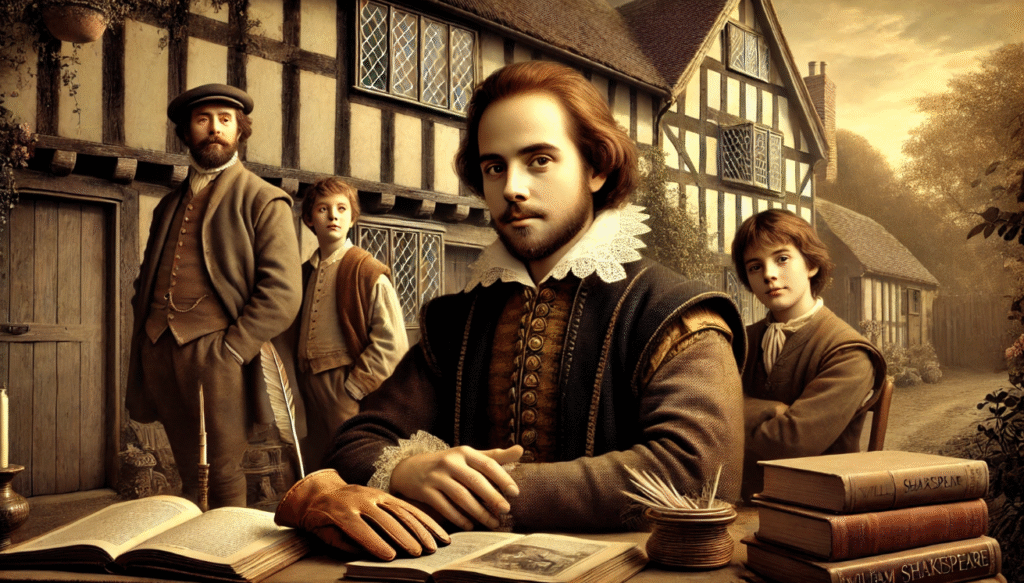William Shakespeare is widely regarded as one of the most influential figures in literature and the arts. His works, including plays and sonnets, have had a lasting impact on the English language and storytelling, and his influence can be seen in countless works of literature, theater, and film. In his final years, Shakespeare continued to write and produce plays, but this period of his life is often overlooked. During this time, he wrote some of his most profound and complex works, including “The Tempest” and “The Winter’s Tale.” He also collaborated with other playwrights and continued to be a prominent figure in the London theater scene. Despite facing personal and professional challenges, Shakespeare’s final years were a time of artistic growth and innovation.
Today, we will be exploring the retirement, personal life, and enduring legacy of a well-known figure during this period. This person has had a significant impact on their field and has left a lasting impression on the world. We will delve into their experiences during retirement, their personal life, and the legacy they leave behind for future generations to remember. Join us as we uncover the story of this influential individual.
Shakespeare’s Retirement to Stratford-upon-Avon

Shakespeare retired around 1613, after spending over 20 years in London as a playwright and actor. There are several reasons why he may have chosen to retire at this time. One reason could be that he had achieved a great deal of success and wealth in his career and may have decided to step back and enjoy the fruits of his labor. Additionally, there was a significant decline in the theater industry due to outbreaks of the bubonic plague, which may have also influenced his decision to retire. After retiring, Shakespeare returned to his birthplace in Stratford-upon-Avon, where he lived out the rest of his life. It is believed that he continued to be involved in local affairs and investments, and spent time with his family.
Factors influencing his decision to leave London:

The decision to leave London may have been influenced by several factors. Declining health could have played a significant role in the decision, as individuals often seek a change of environment to improve their well-being. Family ties and obligations may have also been a driving force, as the need to be closer to loved ones can heavily influence a person’s decision to relocate. Additionally, concerns about financial stability may have prompted the individual to seek a more affordable living situation elsewhere. These factors, among others, likely played a part in the decision to leave London.
Life in Stratford: A Glimpse of Quiet Domesticity
Shakespeare’s life as a gentleman farmer and property owner was marked by a successful and lucrative career in the agricultural industry. He owned several properties in his hometown of Stratford-upon-Avon, including a large estate called New Place. As a landowner, he was involved in various agricultural activities, such as cultivating crops and raising livestock. In addition to his farming pursuits, Shakespeare also had investments in real estate and was a shareholder in the Globe Theatre. This period of his life allowed him to enjoy financial stability and social status, further contributing to his legacy as a prominent figure in English literature and society.

Role as a family man:
William Shakespeare had a close and loving relationship with his wife, Anne Hathaway. They were married for over 30 years and had three children together. Shakespeare also had a strong bond with his children and grandchildren, and his family was an important source of inspiration for his writing. He often referenced family dynamics and relationships in his plays and sonnets, reflecting the deep affection and connection he had with his loved ones.
Stratford is a charming town known for its rich history and welcoming community. Each day in Stratford is filled with a sense of community as residents engage in various activities and interact with one another. Whether it’s enjoying a cup of coffee at a local café, shopping at the farmer’s market, or taking a stroll along the river, there is always a friendly face to greet you. The local community in Stratford is tight-knit and supportive, with residents often coming together for events, festivals, and volunteer opportunities. People in Stratford take pride in their town and are always willing to lend a helping hand to their neighbors.
Health Challenges and Final Days

Speculations about Shakespeare’s health:
It’s important to be aware of the signs of physical and mental decline as they can be indicative of various illnesses. Typhus is a bacterial infection that can cause symptoms such as fever, headache, and rash. Mercury poisoning can occur from exposure to high levels of mercury and may cause symptoms like tremors, memory loss, and irritability. It’s important to seek medical attention if you or someone you know is experiencing these symptoms in order to receive a proper diagnosis and treatment. It’s always best to consult with a healthcare professional for personalized guidance and care.
Shakespeare’s will (drafted in 1616):
Well, one key provision in William Shakespeare’s will was the infamous “second-best bed” bequest to his wife, Anne Hathaway. This has stirred much debate and speculation over the years, with some interpreting it as a slight towards his wife, while others believe it was a customary gesture in Elizabethan times. As for the events leading to his death on April 23, 1616, there is much uncertainty and speculation. Some believe he fell ill after a drinking bout with fellow playwrights, while others believe he may have succumbed to a fever or other illness. Despite the mystery surrounding his death, Shakespeare’s legacy continues to live on through his timeless literary works.
The Legacy of Shakespeare’s Final Works

Shakespeare’s final years later works include collaborations with other playwrights, such as John Fletcher. One of the most notable co-authored plays is “The Two Noble Kinsmen,” which was written with Fletcher. This play is often considered a fine example of their collaboration and showcases Shakespeare’s continued influence on the literary world even in his later years.
During this period, there was a noticeable shift in the thematic and stylistic elements in his writing. Initially, there was a strong focus on active creativity, with an exploration of various themes and experimentation with different writing styles. However, as time passed, there was a transition towards preserving his body of work, with a more reflective and introspective approach to his writing. This shift reflected a deeper contemplation on his past work and a desire to preserve and revisit the themes and styles that had shaped his earlier creative endeavors. Overall, this period marked a transition from active creativity to a more introspective and preservation-focused phase in his writing.
Shakespeare’s will (drafted in 1616)
William Shakespeare passed away on April 23, 1616, in Stratford-upon-Avon, England. He was buried at the Holy Trinity Church in Stratford, where he had been baptized 52 years earlier. The exact location of his grave within the church is not known, but he is believed to be buried inside the chancel. The epitaph on Shakespeare’s tombstone reads: “Good friend for Jesus sake forbeare, To dig the dust enclosed here. Blessed be the man that spares these stones, And cursed be he that moves my bones.” This epitaph is significant because it is believed to be Shakespeare’s own warning to deter anyone from disturbing his remains.
It is remarkable to consider the modesty of his funeral in comparison to the enormous cultural influence he had. Despite his impact on the world, his funeral was a simple and understated affair, which speaks to his humility and focus on the work itself rather than the accolades. It serves as a reminder that true impact is measured not by the extravagance of a final goodbye, but by the lasting legacy left behind.
The End of an Era: Shakespeare’s Cultural and Literary Legacy

Shakespeare’s death in 1616 marked the end of an extraordinary literary era known as the Elizabethan and Jacobean periods. During this time, Shakespeare’s works, including his plays and sonnets, had a profound impact on English literature and theater. His innovative use of language, complex characters, and exploration of universal themes such as love, power, and ambition set a new standard for writing. Following Shakespeare’s death, his influence continued to be felt by subsequent generations of writers and artists. His plays were widely performed and studied, and his language and characters inspired countless writers and playwrights. His impact extended beyond literature to influence other art forms, including music, visual arts, and film.
Shakespeare’s works have played a pivotal role in shaping modern literature and drama. His innovative use of language, complex characters, and timeless themes have had a lasting impact on the literary and theatrical world. The First Folio, published in 1623, is a collection of Shakespeare’s plays that was instrumental in preserving his work for future generations. Without the First Folio, many of Shakespeare’s plays may have been lost to history. Its importance in preserving his plays cannot be overstated, as it provided a comprehensive collection of his work that has served as the basis for the modern understanding of his plays.
In the final years of his life, Shakespeare returned to Stratford-upon-Avon and focused on his family and personal affairs. Despite retiring from the theater, he continued to write and collaborate with other playwrights. His legacy during this time is significant in understanding his personal life and the context in which his works were created. Shakespeare’s works continue to be relevant and timeless, resonating with audiences across the globe even centuries after his death. His exploration of universal themes such as love, power, and the human condition has ensured that his plays and poems remain enduring classics. It is fascinating to consider how Shakespeare would view his enduring influence if he were alive today.













